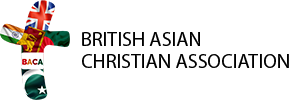In the small village of Saif Mari, located in Mirpur Khas, Sindh, nearly 20 Christian and Hindu families are struggling with the basic necessity of clean drinking water. These impoverished farm worker families have no access to a hand pump and must rely on water from irrigation ditches located in distant sugarcane fields—a perilous and unhealthy source.
Despite the United Nations’ global recognition that clean water is a fundamental human right, millions of people around the world continue to live without access to it. Sindh, one of the most water-scarce regions in Pakistan, is a stark example. While government and non-government agencies have mobilized resources to address this issue, rural villages like Saif Mari, where Christians reside, remain in dire need.
The Struggle for Water
The burden of fetching water in Saif Mari falls heavily on the women and young girls of the community. With no men at home during the day, as they leave early to work in the fields, the women must travel alone through large, dense sugarcane fields to reach irrigation ditches at the edges of the farmlands. The journey is fraught with fear and danger, as the thick cane fields offer little visibility, and walking alone is a terrifying experience for these women.
Evangelist Prabhu Das, a BACA volunteer who leads a small group of Christian believers in Saif Mari, reached out to the British Asian Christian Association (BACA) on 12th October 2024, requesting the installation of a hand pump for the settlement. He explained the daily struggle of these families, highlighting the dangers and health risks associated with the water they currently collect.
“The women sometimes have to wait for their men to escort them to the water ditch because they fear going alone through the fields,” Prabhu Das reported. He also mentioned the physical toll this task takes: “The women often complain of backaches and exhaustion after carrying large pots of water on their heads and backs.”
Unhealthy Water Sources
The water collected from the irrigation ditches is polluted and unsafe for consumption. Women have reported finding dead animals and birds in the ditches, making the water dangerous to drink. As a result, many children in the community suffer from poor health, including frequent stomach problems and diarrhea. One resident, Riya Bibi (30), shared her concerns: “My two-year-old daughter is often sick with diarrhea.”
BACA has been called upon to help ease this burden by installing a hand pump in the village. Clean, accessible drinking water would not only reduce the physical strain on the women and girls but also improve the health and well-being of the entire community.
BACA’s Response
In response, BACA is actively working to support the Saif Mari community by planning the installation of a hand pump at an estimated cost of £700. This pump will provide clean, safe drinking water, drastically improving daily life for these families.
BACA will also be distributing essential hygiene supplies, including soap, shampoo, toothbrushes, and toothpaste, while educating residents on basic hygiene practices to improve health and sanitation. In the near future, BACA hopes to provide a medical tent in Saif Mari to assess, treat, and guide locals toward better health.
To support this project, you can donate by using one of the many options listed (here).
Juliet Chowdhry, trustee for British Asian Christian Association, said:
“At BACA, we’ve witnessed firsthand the transformative power of clean water. With over 60 installations completed in the 15 years since our inception, we’ve seen communities overhaul how they drink, wash, and clean, reclaiming their health and well-being with every hand pump. Complaints of waterborne illnesses plummet, and access to a local water source in Christian communities significantly reduces the risk of kidnapping and assault that women and girls face when forced to travel far for water. Clean water is more than just a necessity—it restores dignity to these families, allowing them to live with the security and self-respect every person deserves.”
Our very first water pump installation in 2015 was established to safeguard two teenage girls who had survived gang rape, providing them a secure water source to protect them from further abuse and violence.(click here).
In March 2017, alongside our installation of 10 hand pumps, the Pakistani Government collaborated with us to install an additional 10 electrically powered water pumps, operated by generator (click here).
Last year, we installed several water pumps, including this one at Khawaja Stop—a community where Christians had lost everything in a devastating flood (click here).


